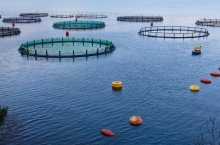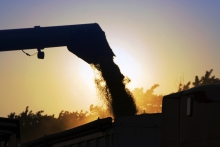

A forthcoming study of over a hundred new cities being built around the world suggests developers and planning authorities are doing very little to make their projects resilient to climate change. On the contrary, a boom in new city projects in coastal areas – including some on reclaimed land in the sea – appears to fly in the face of the danger of rising sea levels and more frequent extreme weather events.

Looking for part-time work where you can geek out in spreadsheets and flex your organization skills? Consider joining the McGill Office of Sustainability team as a Sustainability Projects Fund (SPF) Administrative Intern!
McGill University’s Desautels Faculty of Management is one of three Canadian institutions honoured by the Association to Advance Collegiate Schools of Business in its 2017 Innovations That Inspire list. All together, the accreditation body recognized 35 schools worldwide across three categories: Engagement Across Disciplines, Engagement with Business and Engaging a Diverse community.

One of the most vital components of the work of the McGill Office of Sustainability (MOOS) is communicating with the wider community about our challenges and milestones on the path towards sustainability.
To help with this task, MOOS is hiring TWO interns:
1. Website Intern:
a savvy and assertive individual who will create content for the MOOS website and ensure that all pages are accurate and up-to-date.

McGill Newsroom
Minimum daily temperature -3 C increases need of search and rescues in Nunavut, affecting culturally valued hunting activities of Inuit
Search and rescue operations in Nunavut have more than doubled over the past decade. In the communities of the vast northern Canadian territory, it’s commonly felt that climate change is one factor making hunting riskier in the spring and fall.

By Cynthia Lee, McGill Newsroom
A move toward plant-based feeds alters the environmental footprint of farm-raised seafood, may change levels of healthy fatty acids in these fish

By Katherine Gombay, McGill Newsroom
Arctic peoples inherently able to adapt given changes to various non-climatic factors

Drought and extreme heat events slashed cereal harvests in recent decades by 9% to 10% on average in affected countries – and the impact of these weather disasters was greatest in the developed nations of North America, Europe and Australasia, according to a new study led by researchers from McGill University and the University of British Columbia.

McGill-led team developing new ways of tracking adaptation

A McGill University-led group of researchers (TRAC3) are looking at whether progress is being made in designing initiatives and policies to reduce vulnerability to climate change across countries. Their aim is to contribute new ways of monitoring the global climate adaptation process.

During the 20th century, urban transportation planning in North America was mainly concerned with easing traffic congestion, improving safety and saving time for motorists. These days, most cities’ transportation plans evoke a more complex blend of environmental, economic, and social-equity goals – all aimed at promoting “sustainability.” Yet, many fail to include meaningful measurements of social-equity objectives, such as helping disadvantaged neighborhoods access essential services, according to researchers at McGill University.

When dams are built they have an impact not only on the flow of water in the river, but also on the people who live downstream and on the surrounding ecosystems. By placing data from close to 6,500 existing large dams on a highly precise map of the world’s rivers, an international team led by McGill University researchers has created a new method to estimate the global impacts of dams on river flow and fragmentation.
